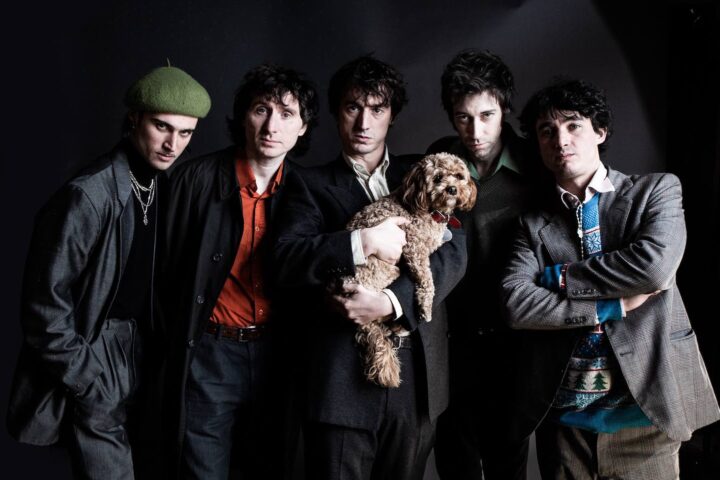Through his lyrics, Idles frontman Joe Talbot often looks outward for love and healing amid the chaos of a broken world. By contrast, the British band’s fifth studio album, Tangk, sees him reaching inward to find it—despite the chaos around him.
One might expect a certain harshness or violence from an album titled Tangk, an onomatopoeia coined by the band themselves. But the very first sounds on the opening track, “Idea 01,” are lightly swirling piano loops and soft pulsing drums—trademarks of Nigel Godrich, who co-produced the album alongside Kenny Beats and band member Mark Bowen. “Idea 01” is a sleepy, slow opener, after which “Gift Horse”—whose tale of galloping freedom is accompanied by rich, clangy guitars and drums—offers a release in both sound and spirit.
“Pop Pop Pop” marks another quick shift in tone. “Freudenfreude, joy on joy, cheerleader, happy boy,” Talbot declares over a bed of dark synths and feedback. The dissonance between the song’s lyrics and music embodies the singer’s only half-hearted attempt to convince himself that he’s happy. Elsewhere, his vocals drip with swagger and sweat as he delivers the album’s most believable blast of grimy communal celebration on the dance-punk “Dancer,” featuring LCD Soundsystem’s James Murphy and Nancy Whang.
Those familiar with Idles’s past work may be surprised to find much of their characteristic righteous anger missing here. But it’s tension, not fury, that Idles excels at anyway. “Roy,” for example, is an exercise in restraint: The track’s vocal hook and quirky drum fills worm their way into your brain before reaching a cathartic crescendo during the song’s explosive finale.
Tangk’s slower songs struggle to command such attention. Lyrically, “Grace” presents itself as a prayer not to God or a king, but to the spirit of love itself. But while the production on tracks like that and the pretty “A Gospel” ably weave in texture and dynamics, the vocal melodies are less compelling, preventing them from achieving the resounding climaxes they aim for. Nowhere is this more apparent than on the meandering closer “Monolith,” which feels both undercooked and tonally out of place following a joy bomb like “Gratitude.”
On a technical level, though, Tangk underpins its more personal and emotional lyrics with rich, layered arrangements. It’s in this delicate balance of sound and sentiment that it finds its groove—not always in the heights it sometimes struggles to reach, but in its earnest exploration of love.
Since 2001, we've brought you uncompromising, candid takes on the world of film, music, television, video games, theater, and more. Independently owned and operated publications like Slant have been hit hard in recent years, but we’re committed to keeping our content free and accessible—meaning no paywalls or fees.
If you like what we do, please consider subscribing to our Patreon or making a donation.



